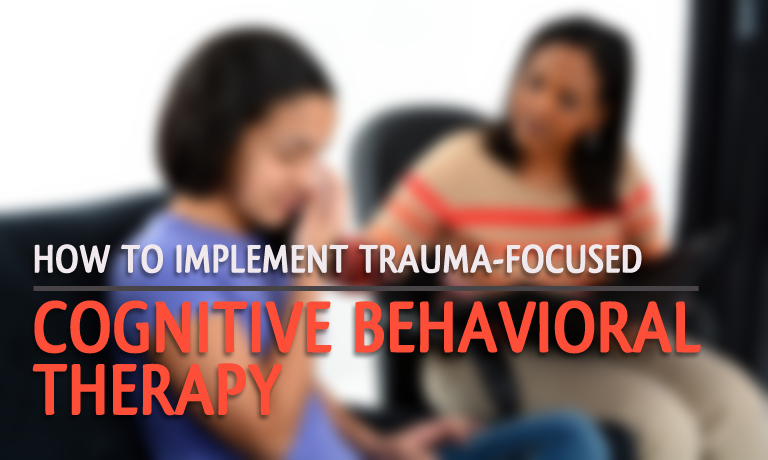
It is an unfortunate fact that many children and adolescents experience traumatic events such as child abuse, domestic violence, rape, violent crime, community violence, natural disasters, war, terrorism, and the death of loved ones under traumatic circumstances. Many experience multiple types of trauma. Although some children demonstrate extraordinary resilience in the aftermath of these experiences, many have significant distress or develop psychological difficulties that can be serious or long lasting. These experiences also increase the risk of adult physical and psychological problems, criminal behavior, and impaired functioning.
Trauma-Focused Cognitive Behavioral Therapy (TF-CBT) is a components-based psychosocial treatment model that incorporates elements of cognitive-behavioral, attachment, humanistic, empowerment, and family therapy models. It includes several core treatment components designed to be provided in a flexible manner to address the unique needs of each child and family. There is strong scientific evidence that this therapy works in treating trauma symptoms in children, adolescents, and their parents. This model was initially developed to address trauma associated with child sexual abuse and has more recently been adapted for use with children who have experienced a wide array of traumatic experiences, including multiple traumas. This TF-CBT Implementation Manual is for therapists, clinical supervisors, program administrators, and other stakeholders who are considering the use of TF-CBT for traumatized children in their communities. It was developed by the SAMHSA-funded National Child Traumatic Stress Network’s (NCTSN) Sexual Abuse Task Force and is based on our experiences over many years in training community providers as to when, how, and with whom to use TF-CBT. Through the NCTSN, we have had the opportunity to further study how community practitioners make decisions about using TF-CBT, and what types of training and consultation experiences optimally assist them in implementing this treatment in their settings.
We hope this TF-CBT Implementation Manual will assist agencies in weighing the pros and cons of adopting this treatment model, offer direct service providers guidance in overcoming obstacles to implementing TF-CBT, and, when used in conjunction with our book, Treating Trauma and Traumatic Grief in Children and Adolescents (J.A. Cohen, A.P. Mannarino,and E. Deblinger; NY: Guilford Press, 2006), an online training course (http://www.musc.edu/tfcbt), and associated training and consultation, assist more children recover from the negative impact of trauma.
